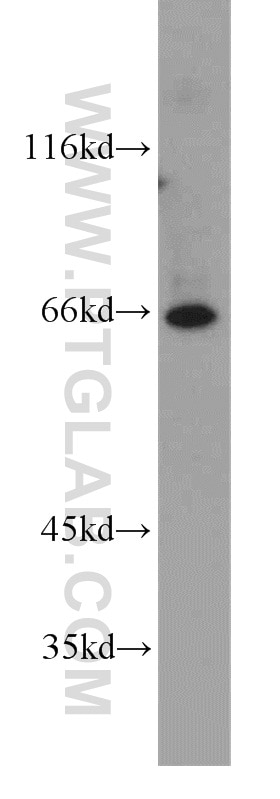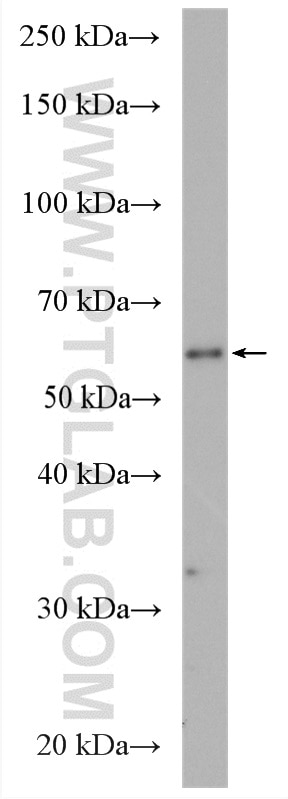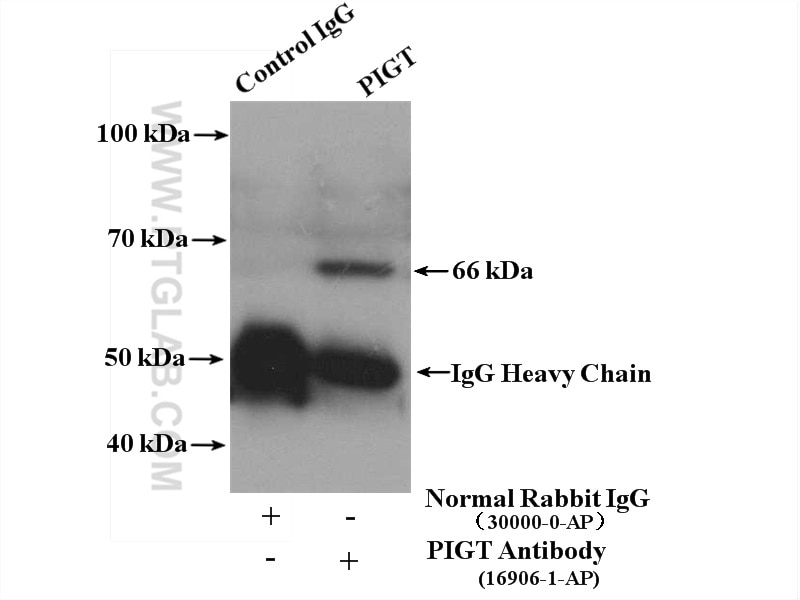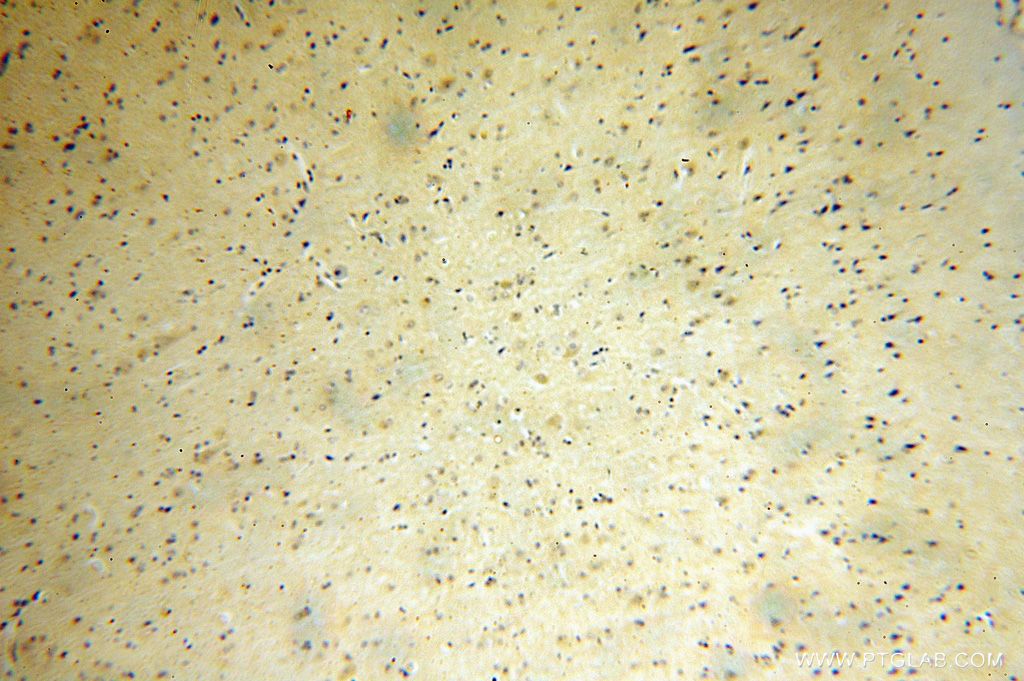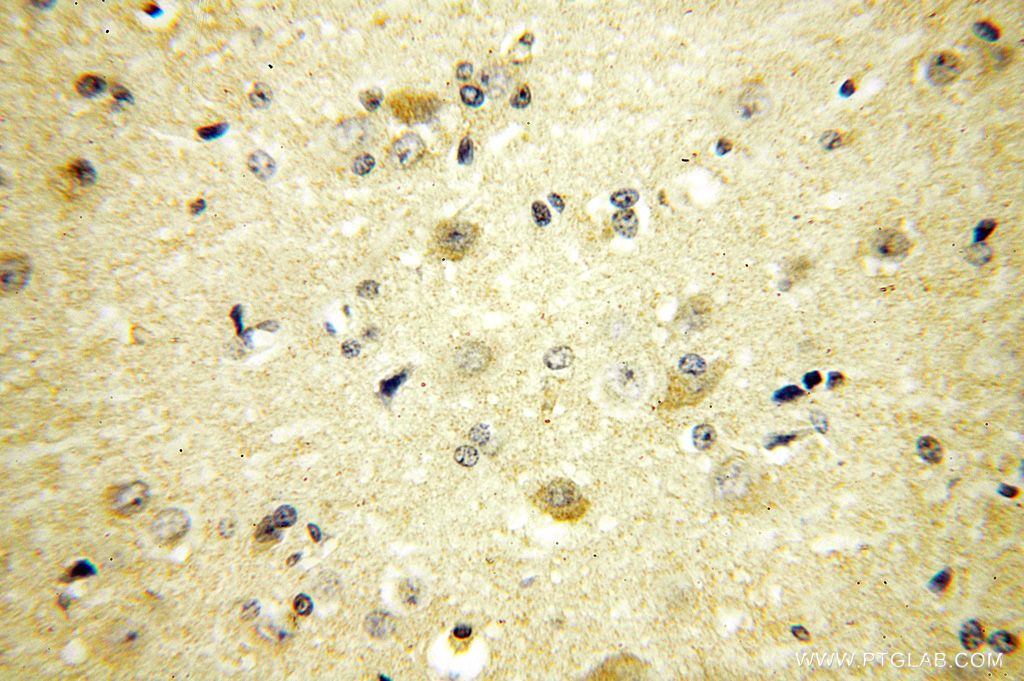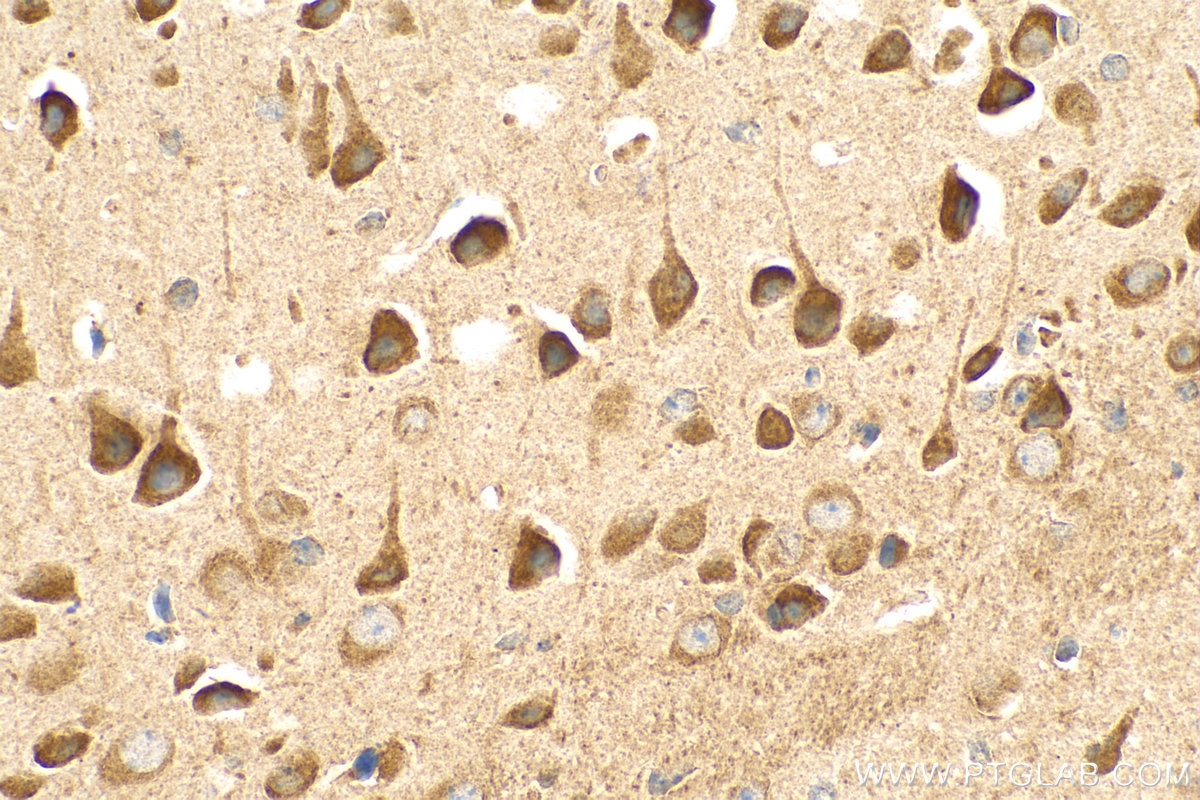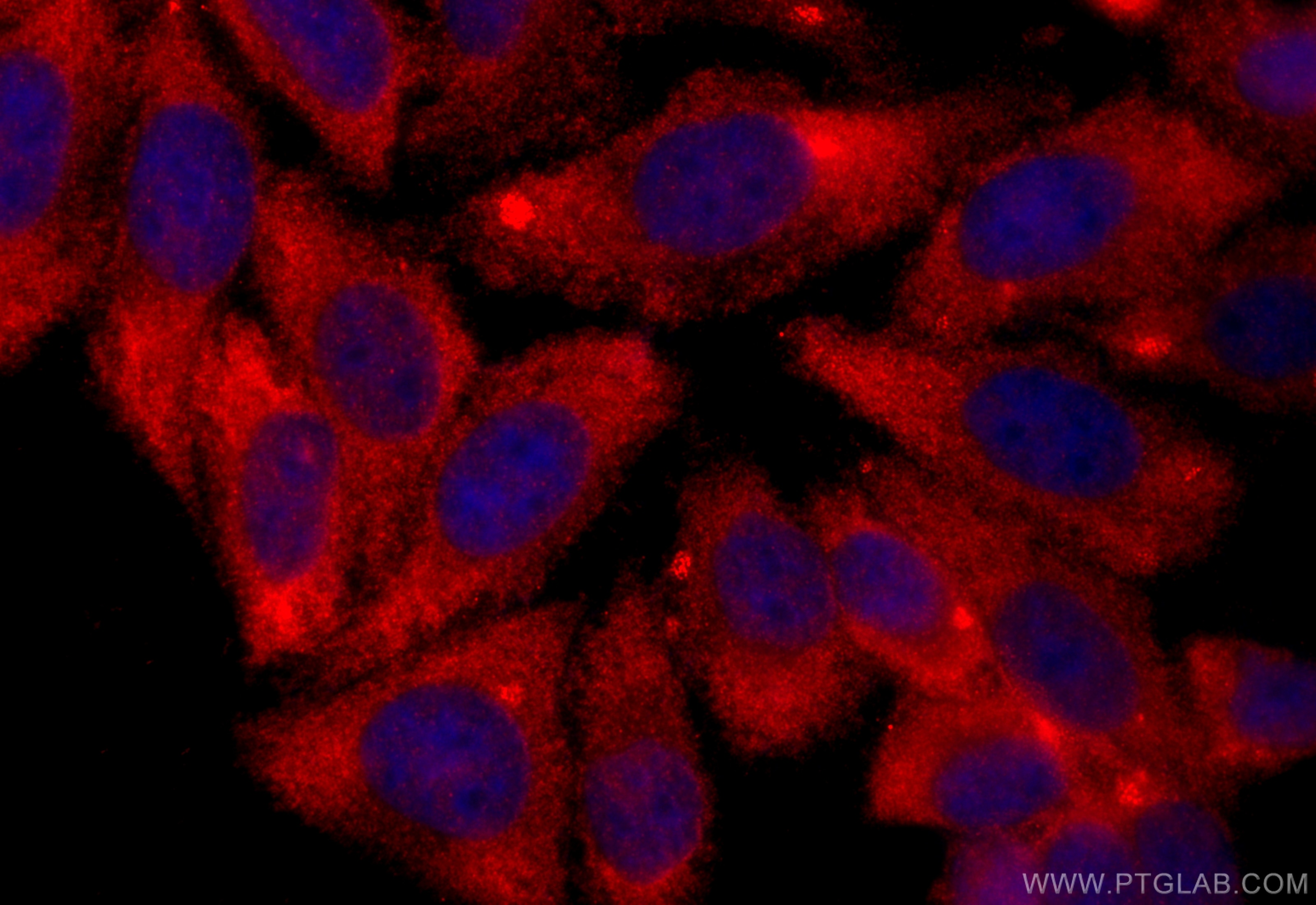- Phare
- Validé par KD/KO
Anticorps Polyclonal de lapin anti-PIGT
PIGT Polyclonal Antibody for WB, IHC, IF/ICC, IP, ELISA
Hôte / Isotype
Lapin / IgG
Réactivité testée
Humain, souris
Applications
WB, IHC, IF/ICC, IP, ELISA
Conjugaison
Non conjugué
N° de cat : 16906-1-AP
Synonymes
Galerie de données de validation
Applications testées
| Résultats positifs en WB | tissu cérébral humain, cellules A549 |
| Résultats positifs en IP | tissu hépatique de souris, |
| Résultats positifs en IHC | tissu cérébral humain, tissu cérébral de souris il est suggéré de démasquer l'antigène avec un tampon de TE buffer pH 9.0; (*) À défaut, 'le démasquage de l'antigène peut être 'effectué avec un tampon citrate pH 6,0. |
| Résultats positifs en IF/ICC | cellules HepG2, |
Dilution recommandée
| Application | Dilution |
|---|---|
| Western Blot (WB) | WB : 1:500-1:1000 |
| Immunoprécipitation (IP) | IP : 0.5-4.0 ug for 1.0-3.0 mg of total protein lysate |
| Immunohistochimie (IHC) | IHC : 1:100-1:500 |
| Immunofluorescence (IF)/ICC | IF/ICC : 1:50-1:500 |
| It is recommended that this reagent should be titrated in each testing system to obtain optimal results. | |
| Sample-dependent, check data in validation data gallery | |
Applications publiées
| KD/KO | See 1 publications below |
| WB | See 4 publications below |
| IF | See 1 publications below |
Informations sur le produit
16906-1-AP cible PIGT dans les applications de WB, IHC, IF/ICC, IP, ELISA et montre une réactivité avec des échantillons Humain, souris
| Réactivité | Humain, souris |
| Réactivité citée | Humain, souris |
| Hôte / Isotype | Lapin / IgG |
| Clonalité | Polyclonal |
| Type | Anticorps |
| Immunogène | PIGT Protéine recombinante Ag10521 |
| Nom complet | phosphatidylinositol glycan anchor biosynthesis, class T |
| Masse moléculaire calculée | 578 aa, 66 kDa |
| Poids moléculaire observé | 66 kDa |
| Numéro d’acquisition GenBank | BC015022 |
| Symbole du gène | PIGT |
| Identification du gène (NCBI) | 51604 |
| Conjugaison | Non conjugué |
| Forme | Liquide |
| Méthode de purification | Purification par affinité contre l'antigène |
| Tampon de stockage | PBS with 0.02% sodium azide and 50% glycerol |
| Conditions de stockage | Stocker à -20°C. Stable pendant un an après l'expédition. L'aliquotage n'est pas nécessaire pour le stockage à -20oC Les 20ul contiennent 0,1% de BSA. |
Informations générales
PIGT is a subunit of the glycosylphosphatidylinositol transamidase complex that catalyzes the attachment of proteins to GPI-anchors. GPI-anchors are glycolipids found on membrane of diverse cells that help proteins anchoring to the cell surface. Mutations of PIGT have been linked to developmental disorders including multiple congenital anomalies-hypotonia-seizures syndrome-3. Multiple isoforms of PIGT exist due to the alternative splicing, with the predicted MWs ranging from 42 kDa to 66 kDa.
Protocole
| Product Specific Protocols | |
|---|---|
| WB protocol for PIGT antibody 16906-1-AP | Download protocol |
| IHC protocol for PIGT antibody 16906-1-AP | Download protocol |
| IF protocol for PIGT antibody 16906-1-AP | Download protocol |
| IP protocol for PIGT antibody 16906-1-AP | Download protocol |
| Standard Protocols | |
|---|---|
| Click here to view our Standard Protocols |
Publications
| Species | Application | Title |
|---|---|---|
J Transl Med PIGT promotes cell growth, glycolysis, and metastasis in bladder cancer by modulating GLUT1 glycosylation and membrane trafficking
| ||
CNS Neurosci Ther Integrated transcriptomic and proteomic profiling reveals the key molecular signatures of brain endothelial reperfusion injury | ||
Nat Commun Proteomic screens of SEL1L-HRD1 ER-associated degradation substrates reveal its role in glycosylphosphatidylinositol-anchored protein biogenesis | ||
BMC Med Genomics Proteomic analysis illustrates the potential involvement of dysregulated ribosome-related pathways and disrupted metabolism during retinoic acid-induced cleft palate development |
